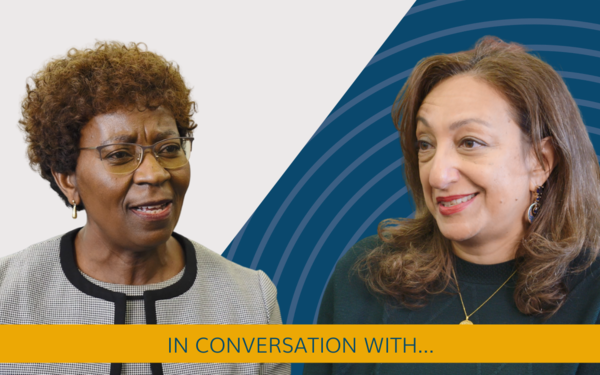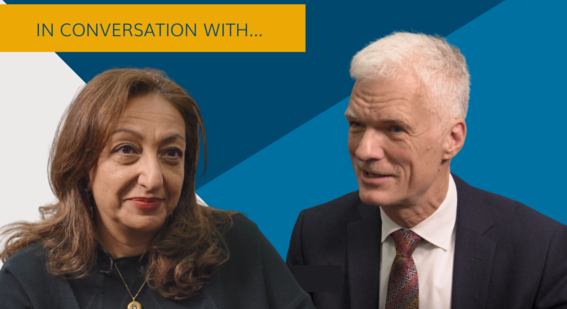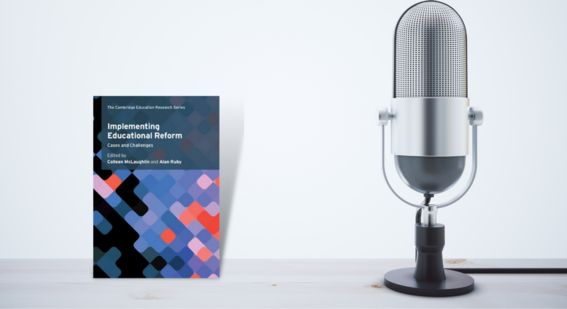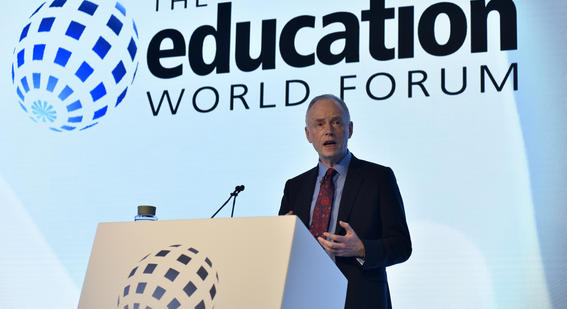Education and gender equality in Malawi: in conversation with Hon. Agnes Nyalonje
In an interview with Dr Hanan Khalifa, the Honourable Agnes Nyalonje of the Ministry of Education, Malawi, spoke on education and gender equality in the country.

As the Minister of Education for Malawi, Hon. Nyalonje highlighted important factors for promoting education and equality in the nation’s youth population.
Leaders and role models in the Malawi education system
Discussing girls’ education in Malawi, the Minister shared the need for positive role models in education systems to help boys and girls develop values that can “provide them a compass through life”.
These values should help young people understand their environments and make better, more informed choices. For youth in Malawi, this can encourage personal development and “self-confidence”.
Hon. Minister Nyalonje explained the power of leaders as role models within education systems, and their ability to influence and inspire young people – in particular how female leaders can influence girls.
Challenges to girls’ education
Speaking on the challenges to girls’ education in Malawi, she reflected on how we can tackle the issues of early pregnancy and child marriage through education and having inspirational role models.
In Malawi, around 42% of girls are married before the age of 18, with teenage marriages contributing to increasing school dropout rates.
Moreover, 80% of child brides experience physical abuse, demonstrating the need for education to be accessible and affordable, and for schools to be safe spaces for girls.
In recent years, female advocates of girls’ education have taught hundreds of girls about the risks of teenage pregnancy. Projects such as Stand Up for Adolescents by Amref Health Africa, have encouraged reproductive health education amongst youth in Malawi. This has motivated girls to further inspire and inform others through youth groups within their communities.
Developing positive values in the Malawi education system
Highlighting the critical role for leaders and educationalists, Hon. Minister Nyalonje shared the need for providing and fostering environments that affirm positive values and education within a society.
The focus of these values should be on building “wholesome individuals” – perhaps like the values reflected in initiatives such as the National Strategy for Adolescent Girls and Young Women, as well as education projects implemented by local, national and international organisations.
Gender equality and boys’ education
The positive outcomes from nurturing girls’ education in Malawi so far have developed confidence and increased opportunities, with girls beginning to “outperform boys” in some contexts.
Speaking on equal opportunities in education, Hon. Minister Nyalonje communicated that similar approaches could be considered for boys’ education in Malawi.
On the challenge of tackling low self-confidence amongst boys in Malawi, the Minister considered whether such a sign could reflect a disproportionate focus on gender equality initiatives.
She emphasised the importance of context, however, stating that “gender equality is about not removing the advantage from the person who seems to have the advantage, but identifying the obstacles in the path of the one who is disadvantaged and removing these obstacles.”
Conclusion: education and gender equality in Malawi
With half of Malawi’s 17.56 million population (8.8 million) aged 10-35, Hon. Minister Nyalonje presents the importance of leadership and role models in building the next generation: the youth are watching and learning.
The Minister also emphasised the “extremely important” role of female leaders and educationalists as she believes they could be “game changers” within Malawi’s education system.




